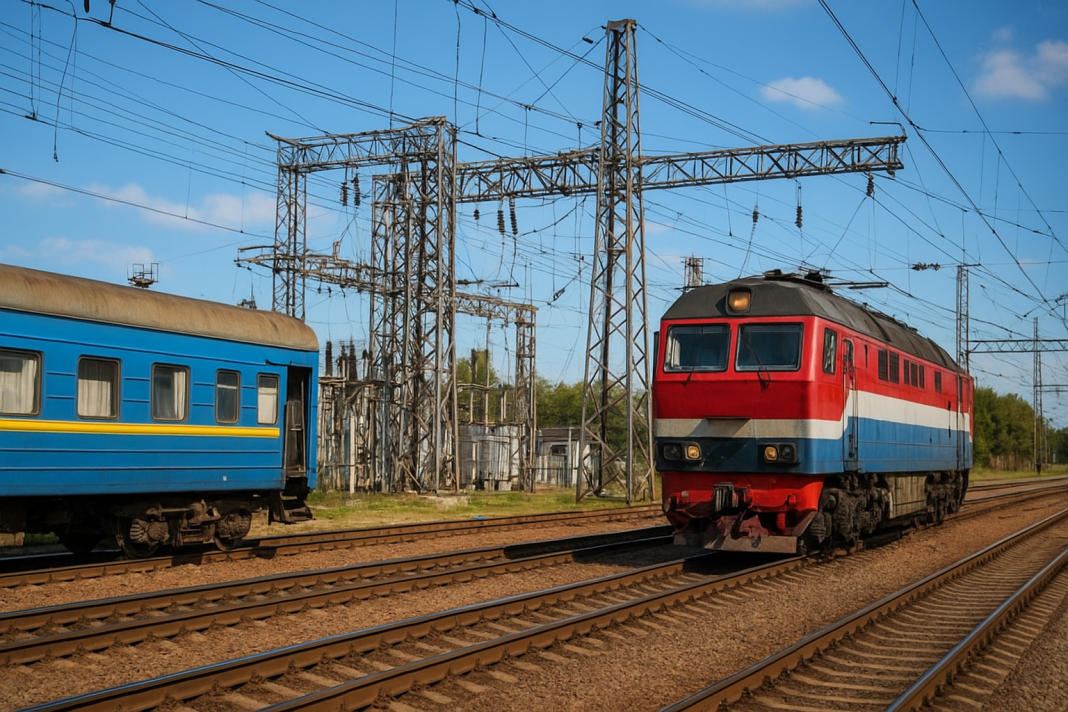Last night, Ukraine’s railway network faced a serious disruption when a series of drone attacks targeted the substations that supply power to trains. These substations are crucial for keeping the railway network running smoothly, and the strikes were aimed at creating delays in both passenger and freight transport.
Massive Drone Strike Hits Railway Power Infrastructure
At the time of the attack, more than 20 passenger trains were already on the tracks. Railway dispatchers acted quickly, stopping the trains at safe distances and moving staff to shelters. Thankfully, no passengers or railway workers were injured during the strikes.
The attacks are part of a continuing wave targeting Ukraine’s railway infrastructure since July. By disabling power stations and control systems, the strikes aim to slow transportation, disrupt the movement of goods, and create challenges for citizens and businesses.
Railway authorities responded immediately by deploying reserve locomotives and activating backup systems on de-energized tracks. This ensured trains could continue running safely, while measures were also taken to maintain international services through alternative transfers at key stations.
Delays and Backup Measures Keep Trains Running
The strike caused significant delays across Ukraine’s railway network. As of the morning of September 17, 26 trains were reported to be running with delays exceeding one hour. These delays affected both domestic routes and international railway services, including key connections to Poland.
Ukrainian railway authorities acted quickly to reduce the impact of the attacks. They deployed more than 20 reserve locomotives to keep essential passenger and freight services moving. This rapid response helped prevent a complete shutdown of affected routes.
Ilsky Devastation: Ukraine’s Drone Strike Sparks Havoc at Russian Oil Refinery
On sections where power, signaling, and communication systems were offline, trains continued to operate using backup procedures. Although these trains moved at slower speeds, the measures ensured that passengers and goods could still reach their destinations safely.
For international travelers, special arrangements were made to maintain connectivity. Transfers were organized at stations such as Chelm and Przemyśl, allowing passengers heading to Poland to continue their journeys without major interruptions despite the disruptions to the train network.
Railway Operations Adapt Amid Repeated Attacks
The repeated attacks on railway infrastructure show how critical railways are in maintaining transport and logistics. Railway networks are vital for moving passengers, goods, and essential supplies across the country. Disruptions to the railway system can create bottlenecks, slow the delivery of essential items, and place extra pressure on communities.
Ukrainian railway authorities are working round the clock to manage these challenges. Backup systems, reserve locomotives, and coordinated operations by railway dispatchers allow trains to continue running even in areas affected by power outages. Staff monitor railway traffic closely to prevent accidents and ensure that trains can operate safely despite ongoing attacks.
Power stations that support train systems are key targets in this conflict. By disabling these stations, attackers aim to halt movement, disrupt transport, and increase economic strain. Operators have emphasized that, despite these challenges, trains remain operational and passengers are being kept safe.
Putin Rejects Use of Nuclear Weapons in Ukraine, As Drone Strikes Hit Kyiv Amid Ceasefire Talks
Since July, Russia has launched multiple waves of attacks targeting Ukraine’s train network. Each strike affects the country’s transport system, demonstrating the strategic importance of this infrastructure in modern conflicts. Ukrainian authorities continue to adapt quickly to keep operations running and maintain the movement of both goods and passengers.
Even with the current disruptions, the train network continues to serve as a lifeline for domestic and international travel. Authorities have ensured that trains can still run on backup systems, minimizing the overall impact of the attacks. The network remains central to the country’s transportation system, and ongoing efforts show the resilience of Ukraine’s operations despite repeated strikes.
